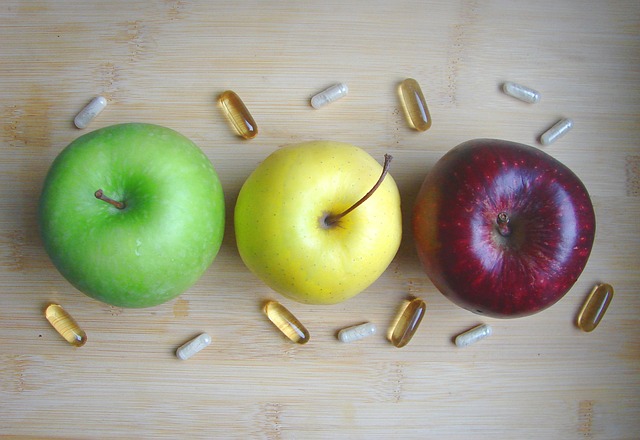Read This If You're Taking Dietary Supplements
Adults who can't get all their daily allotment of recommended nutrients often resort to taking dietary supplements. These supplements are beneficial to people who are too busy or economically restricted to get all of the important nutrients in their diet. Dietary supplements are also incredibly important to individuals who suffer from a lack of a certain vitamin or nutrient. Despite their positive aspects, there are some guidelines that should be considered when taking these supplements.
Here are a few general tips for taking dietary supplements in the safest and most healthy manner possible.
1. Take the right dosage
Although dietary supplements aren't as strong as over-the-counter medications, it is still important to take the recommended dosages printed on the bottle. However, your doctor may advise you to take a supplement in a different manner than the label suggests. In this scenario, it is reasonable to stick with a recommendation provided by your medical professional.
It is important to remember that supplements are designed to provide you with additional nutrients to your diet. There is no health advantage to consuming more nutrients than recommended on a per day basis. In fact, there can be some negative health consequences for getting too much of particular minerals or vitamins. Here are a few supplements that you should be careful not to ingest over the recommended daily amount.
Iron is an important mineral that functions to carry oxygen to various places within the human body. Iron also plays an important role in the maintenance of brain, muscle, and immune system function. When you ingest more iron than is needed, this mineral can be toxic to your heart and liver. Too much iron can result in several symptoms ranging from depression to sexual impotence. Serious cases could result in organ failure and death. It is important to consult a medical professional before taking iron supplements.
2. Administer the supplement as directed
Administering your dietary supplements as directed isn't as simple as sticking to the recommended dosage. It is important to read the entire label of any prescription, over-the-counter medication, or dietary supplement. These labels will provide important information about how the supplement could interact with the foods you eat or other supplements that you take.
You should always administer your supplements according to the guidelines on the label. Although it is advisable to take dietary supplements with food, some will need to be taken on an empty stomach. Certain minerals and vitamins can impact the absorption of some other medications. It is critical that you read labels on all of your OTC medications and prescriptions to ensure that there is no conflict. It is also important to consult with a doctor when taking multiple supplements, medications, or prescriptions.
3. Read the labels carefully
It's important to conduct your own research when choosing a particular supplement. This research should include reading the labels very carefully. Many people simply browse over the information on dietary supplements because the language can be difficult to understand. It is not a good idea to forgo this information. You should be patient and take enough time to understand what is written on these supplement labels. They contain pertinent information that is intended to keep users safe. Here are a few things to look for when choosing a particular supplement.
Unbelievable Claims
You should be skeptical about any claims that sound too good to be true. There is no such thing as a miracle pill or quick fix for difficult problems.
Organic or Natural Claims
Many people choose dietary supplements because of the words "organic" or "natural" and assume that the product is healthy. All supplements have the potential to be hazardous and dangerous. A buzzword isn't going to change this reality. Some supplements claiming to be "organic" or "natural" may contain ingredients that you don't want to use. According to Jordyn Smith from VeganProducts.org, animal products are even used in some dyes contained in pills. Asking the pharmacist if there is a dye-free option is always a good idea.
4. Never replace real food with supplements.
The primary and designated function of dietary supplements is inherent within the name. These vitamins and nutrients are intended to be supplemented to your diet, not a replacement. These supplements can be seen as complementary additions to a diet instead of an integral component. Real food will always be superior to dietary supplements when it comes to administering the highest-quality nutrients, vitamins, and minerals.
5. Store your supplements in a protected and safe manner.
In order to prevent accidental ingestions, it is important to store your supplements in a protected manner. Whether locking your supplements in a box or placing them in a higher location, you should take some precautions to ensure that children cannot accidentally access these vitamins or minerals. It is also important to store dietary supplements in a secure manner in order to retain the integrity of the actual pills.


